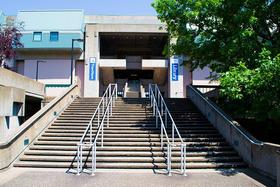Choosing a college is a huge decision – one that will affect your career options for the rest of your life. Not only is selecting a college a life-changing decision, but it can be a very challenging decision to make simply because there are so many options. Between state colleges, private colleges, and community colleges, your options are nearly limitless but, for many people, community colleges aren’t even on the radar. Why is it that community colleges get such a bad rap and is a bad reputation deserved?
In this video, Aspen Institute College Excellence Program Executive Director Josh Wyner discusses the benefits of community colleges, including how they are preparing a skills-ready workforce.
The Benefits of Community College
Before getting into the reason behind the bad rap community college often receives, it would benefit you to learn some of the reasons why someone might choose a community college over a state or private institution. You will find a list of benefits associated with community colleges below:
- Lower Tuition Costs – The main benefit of attending community college over a state or private institution is reduced tuition costs. While a private college might charge $30,000 or more for a single year, community colleges might charge the same amount (or less) for four years of education. Not only are tuition costs lower at a community college, but the associated fees are lower as well.
- Off-Campus Housing – One of the major costs associated with state and private colleges is the cost of housing. If you choose to attend community college you don’t have to pay for on-campus housing and you may even be able to live at home.
- Focused Faculty – At a private or state college or university, professors are expected to spend a good deal of their time on individual research projects and publications. This might take away from the time they might otherwise spend offering personal attention to their students. At a community college, the faculty is only focused on teaching.
- Smaller Class Sizes – Depending on the school, class sizes at a state college or university can reach into the hundreds. At community colleges, class sizes are typically much smaller, ranging from 25 to 35 students. Smaller class size means more individual attention and a better atmosphere for asking questions.
- Transferable Credits – Because the cost of obtaining a degree from a state or private college is so high, many students choose to complete their core classes at community college and then transfer those credits when they are ready to complete their degree. This can save a lot of time and money.
- Flexible Scheduling – Many community college students work part-time or full-time jobs while attending classes so they need to be able to schedule their classes around their work schedule. Community colleges offer both daytime and nighttime classes as well as online classes – this is not always the case with private and state colleges.
These are just a few of the many benefits offered by community colleges over traditional colleges and universities. Each student’s experience is different, but community colleges offer a variety of important advantages – the student only has to know that they exist and utilize them to his or her benefit.
In this video from The Financial Diet, Chelsea tells you why you should consider community college.
The Truth Behind the Reputation
Now that you understand some of the many benefits associated with community colleges versus traditional colleges, you may be wondering why community colleges still have such a poor reputation. In truth, the reasons behind this bad reputation are largely a matter of misconception. Many people assume that the only reason students attend community college is that they were not accepted by a regular university. Along with this assumption comes the idea that community colleges offer a lower quality of education than traditional universities which is not necessarily true. Many professors who are employed by traditional universities are also or have been employed by community colleges at one time. The only difference is that if you take a course from a certain professor at a traditional university, you might not get the same personalized attention as you might if you took the same course at a community college.
Another reason why many people look down upon community colleges is that they assume that the degrees offered won’t get you as far as a degree from a traditional college would. While every community college is different and the individual professors play a large role in determining the quality of education, there is no real difference between a degree earned at a community college and one earned at a state or private college. In fact, there are plenty of successful people who graduated from a community college. Oscar award winner Tom Hanks, Supreme Court Justice Arthur Goldberg, and presidential candidate H. Ross Perot are just a few community college attendees who went on to do great things.
This video explains the good and bad of community colleges from one person's perspective.
In addition to assuming that community colleges offer a lower quality of education than traditional schools, many people also assume that community college is only for “non-traditional students” – this is another word for older students. While it is true that community college offers greater flexibility for working adults who want to earn a degree, there are just as many young students who attend a community college right out of high school as there are older students who return to school later in life. According to the American Association of Community Colleges, the average age of a community college student is 28 and only about 16% of community college students are over 40. There are even middle school and high school students who take community college courses to supplement their education.
Perhaps the biggest influence on the public’s perception of community colleges is the students themselves. While some community college students take full advantage of what their schools have to offer, just as many students fail to make the most of their community college experience. Many community college students simply do not realize what their schools have to offer in terms of career planning and other support services. They may also fail to take their classes and coursework seriously because they too ascribe to the misconception that community colleges offer a lower quality of education. If community college students were to take their opportunities seriously, taking advantage of the benefits, they might be able to help the public change its perceptions.
People tend to be skeptical of things they do not understand and this may be one reason why community colleges are still looked down upon. Unless you have taken classes at a community college or known someone who has, you might be perpetuating some of the misconceptions discussed above without even realizing it. In reality, community colleges are just as viable an educational option as traditional state and private institutions.
Questions? Contact us on Facebook @communitycollegereview.














